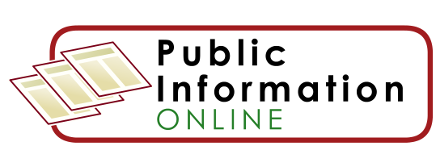



On 3 March 2020 the Lord Chancellor, Robert Buckland QC, made a written ministerial statement welcoming the report of the Law Commission on Electronic Execution of Documents (Law Com No 386). That report concludes that there is no need for formal primary legislation to reinforce the legal validity of electronic signatures on documents, and that […]
Read More
Can technology improve our health and transform healthcare? A whole panoply of tech companies are working on a range of products and services which aim to answer these questions in the affirmative. The burgeoning industry which has been dubbed “medtech” has already led to some fascinating (and controversial) partnerships, perhaps most notably involving Google Deepmind […]
Read More
The dreaded Covid-19 is causing panic, and as digital marketers, we may be facing leaner times as our businesses are putting a laser focus on profitability, and ensuring every cost gives the great return on investment. Businesses are looking more carefully at budgets, making sure we can squeeze every penny of profit out of our […]
Read More
Increasingly, the information we need and use every day is stored, accessed and controlled online. We have become accustomed to the convenience and efficiency of being able to access significant swathes of information about ourselves, our business and the world at the tap of a button. Many of us accept that such convenience comes at […]
Read More
The Coronavirus Act 2020 received Royal Assent 25 March and is at www.legislation.gov.uk/ukpga/2020/7. The Law Society’s Coronavirus advice and updates are here. The Bar Council’s Coronavirus advice and updates are here. As the coronavirus pandemic spreads and courts around the world are closing, Remote Courts Worldwide was launched 30 March. It has been designed to […]
Read More
The government recently indicated a willingness to diverge from EU regulations post-Brexit. Perhaps one of the more significant moves in this direction is the announcement by Universities and Science Minister Chris Skidmore that the UK will not implement the controversial EU Copyright Directive. The main criticism levelled at the directive was down to Article 17* […]
Read More
It was recently reported that the European Commission (EC) was considering a temporary ban on the use of facial recognition technology in public places. A draft white paper on artificial intelligence had reportedly stated that the “use of facial recognition technology by private or public actors in public spaces would be prohibited for a definite […]
Read More
To launch a new edition of a legal textbook in the very month that the UK is about to leave the EU – let alone a book focused on the internet at the height of the techlash – may seem a little reckless. Or perhaps not. Internet law stays still for hardly a moment anyway. […]
Read More
Public Information Online (PIO) at publicinformationonline.com is an online database provided by Dandy Booksellers, who are well established suppliers of official government print publications. The PIO database collects and provides access to digitised parliamentary papers going back for more than a century. The material held includes Public General Acts since 1900, House of Lords Papers […]
Read More
“I read it on the internet” has become a phrase which often generates mockery and epitomises gullibility or naivety about the online world. In the 1950s science fiction writer Theodore Sturgeon proclaimed that “ninety percent of everything is crud” which came to be known as Sturgeon’s Law. One can only speculate as to how Sturgeon […]
Read More
In August 2015, a British journalist and cameraman were travelling in Turkey, making a documentary for Vice News. As is often the case, they were working with a local agent, a “fixer” who was responsible for getting them access to the locations and subjects they wanted to include in their documentary. All three were arrested […]
Read More
Since the internet was in its infancy, the rights of users to use it to express their opinions was sacrosanct. When the first laws of the internet were being forged by legislature and in the courts, internet service providers (ISPs) were the focus of these sacred rights and they avoided liability by claiming they were […]
Read Moreinfolaw Limited 5 Coval Passage London SW14 7RE Registered in England number 2602204 VAT number GB 602861753